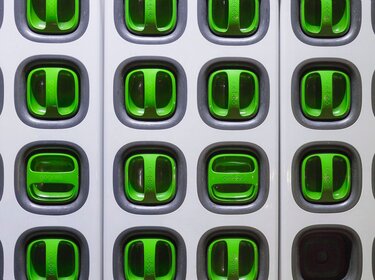Position on Batteries and Waste Batteries
Product safety legislation
Conformity assessment

Economically speaking, the European Union is an internal market in which goods and services can easily be exchanged. EU bodies work to harmonise the legislation as much as possible so that the same rules apply throughout the European Union. This process is time-consuming, as not only the various national particularities must be taken into account, but also technical progress. The current debate on standards for digital products makes this clear: functional product safety is complemented with IT security.
Not only politicians are debating the standards, however, but also a great many experts who are fully familiar with the technical and legal details. The TÜV Association and its member organisations are among the experts actively participating in these bodies and whose voice is heard.
There’s a reason for this: members of the TÜV Association assess products and services within the legal framework. The TÜV experts therefore assume a great responsibility. To be allowed to carry out conformity assessment activities, organisations must often master a demanding process to gain the required accreditation. The competent authority then checks regularly how experienced, independent and neutral the assessment organisations really are. So the assessment organisations are also regularly checked!
Assessment organisations such as the TÜV organisations are tasked with testing, inspecting, certifying, validating and verifying products, services and systems independently and neutrally. To be able to say afterwards: everything is fine, everything is safe!
Standardisation
Standards and specifications help to reduce barriers to trade. Standardisation is therefore above all an international task. Standards are developed according to the principles of the national (DIN, DKE), European (CEN, CENELEC, ETSI) and international (ISO, IEC, ITU) standardisation organisations, with the participation and consensus of all interested parties. Requirements are defined for products, processes, etc. and improved by the respective expert committees according to the technological state of the art.
The ISO/CASCO international committee that includes representatives from 130 member states focuses exclusively on specifications and guidelines for conformity assessments. These are subsequently adopted on the European and national levels.
Conformity assessments
Tasks during a conformity assessment: it has to be demonstrated that the assessed object (product, process, service, system, installation, etc.) complies with the (EU) regulations and/or the respective industry standards. There are different types of conformity assessments; standards have been defined for each:
- During a test, a defined procedure is used to test materials, individual samples or finished products. The test results are then documented in a test report.
- During an inspection, an object is examined and compared according to specific or general requirements based on an expert assessment. An inspection report therefore also contains a statement of conformity.
- The certification is carried out by independent third parties who are neither the manufacturer or supplier (first party) nor the customer or consumer (second party) of the object to be certified. Certification always includes an evaluation of the object, an assessment of the results and confirmation of conformity.
- Validation and verification are the preferred methods when information is the object of assessment. The assessing body’s statement then confirms the plausibility (validation) or correct presentation (verification) of the information that is claimed, reported or declared.
The principles and requirements for conformity assessments have – of course – also been standardised – in the ISO/IEC 17000 series.
Your contact
![Dr Ingo Steinke [Translate to Englisch:]](/fileadmin/_processed_/7/5/csm_TUEV-Verband_Dr._Ingo_Steinke__C__Tobias_Koch__1__1500px_9e7e4a6d89.jpg)
Dr Ingo Steinke
Head of Accreditation, Standardisation and Climate Protection


